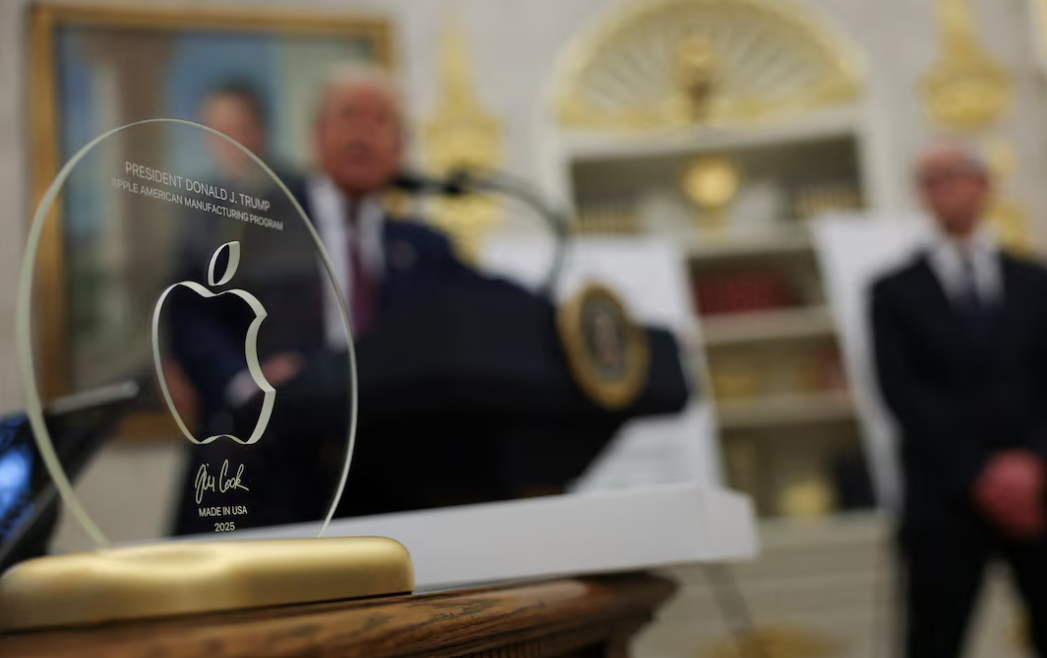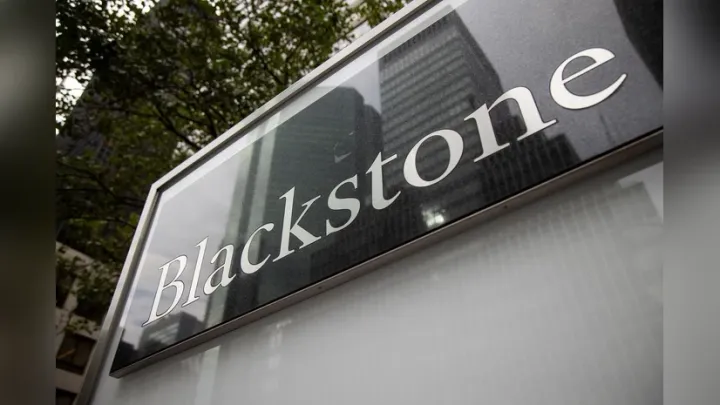Apple Stocks Rise Following $100 Billion U.S. Investment Announcement, Alleviating Tariff Concerns

Apple Inc. (AAPL.O) stock climbed 1.6% in initial Frankfurt trading on Wednesday after the maker of iPhones unveiled a record $100 billion investment in U.S. production. The announcement comes at a pivotal moment, just hours following U.S. President Donald Trump's unveiling of deep new tariffs on semiconductor imports that sent shudders through investors and international tech producers.
The investment, presented by Apple CEO Tim Cook at the White House together with President Trump, is focused on increasing domestic manufacturing, employment, and infrastructure in America. The move was received positively by the market, as it is interpreted as Apple taking strategic direction with Washington's industrial and economic objectives.
A Strategic Move Amid Trade Tensions
Apple's move seems to be an immediate response to Trump's recently announced 100% tariff on foreign-made semiconductors—a move aimed at curbing U.S. dependence on foreign tech components, particularly from China. Trump did, however, clarify that firms actively investing in U.S. manufacturing would be exempted from the new tariff regime.
"Apple's investment in America is a great example of the kind of innovation and job creation we want to encourage," Trump declared at the press event. "This administration will always support those companies that choose to create and grow here at home."
The commitment is one of Apple's biggest to U.S. manufacturing to this point and will be directed into a number of different initiatives, such as semiconductor manufacturing, high-end robotics, and renewable energy systems at its current and future facilities in the U.S.
Market Reaction and Global Implications
The news was welcomed by the market, with Apple's share price rising during international trading. Investors were afraid that increased tariffs could have a devastating effect on Apple's cost profile and global supply chain. By positioning itself behind Washington's reshoring ambitions, Apple not only defends its margins but also wins brownie points in an uncertain political climate.
Analysts say this step can serve as a precedent for other technology giants that are dependent on global supply chains. "Apple is making it clear that it will play by the new rules to ensure stability and to safeguard shareholder value," said Mark Caldwell, senior analyst with Brookstone Capital.
Although the full specifics of the $100 billion investment initiative are still not out, Apple is likely to make a major boost in its U.S. chip design and assembly facilities and collaborate with local vendors to enhance its domestic ecosystem.
Looking Ahead
The decision is sure to fuel more debates on supply chain nationalism, particularly as the U.S. embarks on a more protectionist course in its international trade policy. For Apple, however, the trick will be to keep its worldwide operations in balance while it upholds its devotion to the home market.
Nevertheless, this announcement is a victory for both Apple and the U.S. government — one that may relax tension and serve as a blueprint for other technology companies to follow as they surf uncertain geopolitical seas.
FAQs
Why did Apple make the announcement of a $100 billion U.S. investment?
Apple made the investment to increase U.S. manufacturing and support the federal government's initiative to have more tech production in America. It is also a way the company can protect itself from potential new tariffs.
What are the new U.S. tariffs, and how do they affect Apple?
The U.S. put a 100% tariff on semiconductors imported from elsewhere. President Trump said, though, that firms such as Apple that invest in American manufacturing would be exempt.
What was the market response to Apple's announcement?
Apple's shares went up 1.6% in initial Frankfurt trade as investors had faith in Apple's move to offset tariff-related risks.
How will the $100 billion investment be utilised?
Though complete details are awaited, the investment is likely to be used in semiconductor manufacturing, advanced robotics, clean energy, and building Apple's U.S.-based operations.
Will this impact Apple's international operations?
Apple will continue to operate worldwide, but this action might relocate part of its supply chain consideration to the U.S. to satisfy regulatory and political demands while maintaining profitability.



